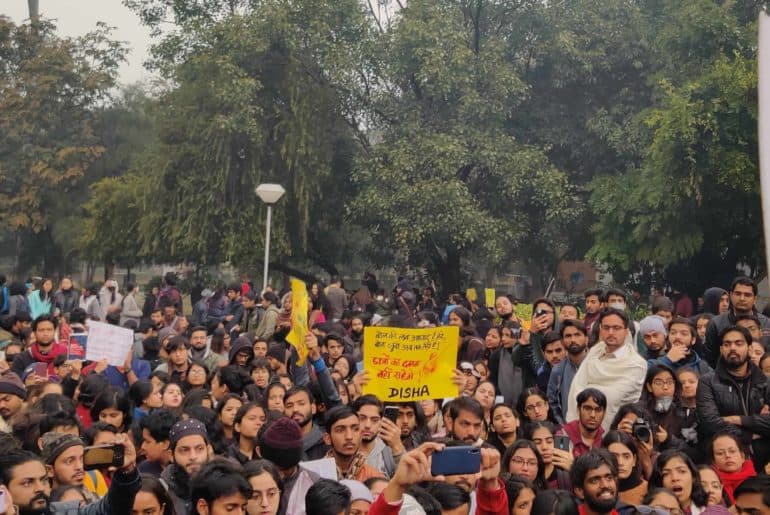While the Citizenship Amendment Act, 2019 (CAA) has corresponded to a trail of protests, the recent legislation needs to be addressed from three other P’s – the politics, patronage and privilege – that interplay along with the proposed nationwide National Register of Citizens (NRC).
The anti-CAA protests have brought the entire nation to a juncture where adjudication does not seem like a perplexing matter. Rather, the course of this movement and its directive hasbeen guided by an array of holds fromstudent, legal, and political experts tothe common masses which generally abstains from addressing such issuesagainst the authorities.
As the Bharatiya Janata Party (BJP)-led Government had calculated, theCitizenship Amendment Bill (CAB) didundergo a smooth passage in both theHouses of the Parliament with support from its alliance parties and more, but a similar smooth shift was observed in their stance after the protests gathered momentum, and their politics found a reality check. While parties like the Indian National Congress (INC), theAll India Trinamool Congress (AITC),Bahujan Samaj Party (BSP), Aam Aadmi Party (AAP), and the Communist Party of India (Marxist) [CPI (M)] opposedthe Bill from the very beginning, soonafter, the Samajwadi Party (SP) and Communist Party of India (CPI) alsojoined the morcha (march) against the
Bill. Another kind of stance was observedby the National Democratic Alliance (NDA) ally, Shiv Sena, which did vote infavor of the Bill in the Lok Sabha, but walked out of their responsibility in the Upper House, and now stand opposedto the Act. Interesting observations werefound by Bihar’s governing party JanataDal (United) [JD (U)] as well, which also gave its vote in motion of the Bill, but senior Party leaders like Prashant Kishor and Pawan Verma criticised the decision, after which the party seemed skeptical,and it appears in bind as well. AssomGana Parishad (AGP) and Biju Janata Dal (BJD) of Orissa also replicated thebehavior of their Maharashtra and Biharcounterparts. BJP’s oldest ally, Shiromani Akali Dal, has also criticised the CAA,and wants to include the only excluded minority under the Bill.
While the opposition in the face of the United Progressive Alliance (UPA) continually stood against this Bill, other opposition parties like AITC and All India Majlis-e-Ittehadul Muslimeen (AIMIM) too seek the rollback of this Law. Kerala’s CPI (M) Government went on to pass a resolution, demanding scrapping of the CAA. 10 out of the 13 governing NDA allies withdrew their support from the BJP on the CAA-NRC plan; former BJP CabinetMinister, Yashwant Sinha, and Bengal’sBJP Vice President, Chandan Kumar Bose,are few of the leaders who have raisedquestions regarding the Act in their Party itself. This poses as a political conundrum in the history of Indian Politics. As the lens transmitted over the politicalmilieu, the CAA gave a tough slap to the
dogma of privilege that largely stoodunaffected from all kinds of proceedingsby the virtue of the social status theyexercised. Esteemed, influential, and prominent faces from all social factionsjoined the country-wide protests, and synchronised with the student unity that shook the order of chaos. Corporateprofessionals in global firms like Google, Amazon, and HCL also wrote to theGovernment to withdraw the Act, in aletter titled “TechAgainstFascism”.
With such circumstances prevailing, the privilege could not stay in denial and
was gradually compelled to take a step.
The students across national universitieshave expressed their resentment and received solidarity from worldwidefraternities in leading institutions and other organisations. From European nations, to the United States, Australiaand the Middle-East, the dissentspread, cutting off the patronage the Government sought to receive. After amonth since the Bill has found clearance,the dissociation from its existence seems to be challenged exponentially, with due action still on halt.
Feature Image Credits: The News Minute
Faizan Salik













